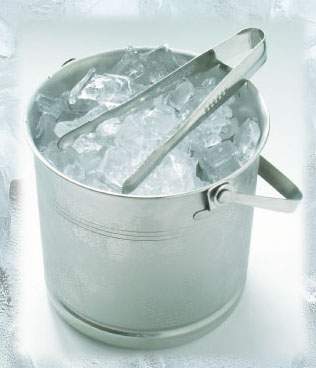USDA FSIS has announced a recall of 545,699 pounds of fresh ground beef products that may be contaminated with E. coli O157:H7 and distributed in seven states. According to FSIS, the product has been linked to a cluster of illnesses in New England.
There are quite a few recalls going on most of the time; this one is notable because this product has been linked to an outbreak of illnesses at a camp in Massachusetts. It’s also notable because bulk amounts of the product were shipped down the East Coast for further processing. Retail outlets receiving some of this product include Shaw, Giant, Price Chopper,Trader Joe’s, BJs and others.
From the press release:
"Products for further processing:
Cases of 10-pound "FAIRBANK FARMS FRESH GROUND BEEF CHUBS."
Each case bears the establishment number "EST. 492" inside the USDA mark of inspection; has package dates of "09.14.09," "09.15.09," or "09.16.09;" and sell-by dates of "10.3.09," "10.4.09," or "10.5.09. These products were distributed to retail establishments in Maryland, Massachusetts, North Carolina, New Jersey, New York, Pennsylvania, and Virginia for further processing. However, these products at retail will likely not bear the package dates and sell-by dates listed above. Customers with concerns should contact their point of purchase."
It is unlikely that any of the product is still being sold fresh at retail stores (the best-if-sold-before dates range from mid-September to early October) but it’s likely that the affected beef is still around in freezers. The meat juices from thawing can provide a nice vehicle for pathogen transfer.
Stick it in with a tip-sensitive digital thermometer (in multiple spots) to ensure that ground beef has reached a safe temperature and be vigilant in containing meat juices when thawing frozen meats. Juicy is good, nasty meat juice spread around the kitchen isn’t.



.jpg) Botulinum is a deadly toxin that comes from bacteria in soil and grows in warm, moist environments with no oxygen and low acidity. For example, it can grow on a baked potato wrapped in foil and left out on the counter. There have also been cases of poisoning in
Botulinum is a deadly toxin that comes from bacteria in soil and grows in warm, moist environments with no oxygen and low acidity. For example, it can grow on a baked potato wrapped in foil and left out on the counter. There have also been cases of poisoning in  If having botulism is better than being married to Chloe, then Lucas better hope Victor, Kate, Sammy or even Daniel will ruin that wedding (you can vote online at nbc.com).
If having botulism is better than being married to Chloe, then Lucas better hope Victor, Kate, Sammy or even Daniel will ruin that wedding (you can vote online at nbc.com). Four juveniles are facing several charges after security cameras showed them urinating into a cafeteria ice machine at a Chapel Hill,North Carolina middle school.
Four juveniles are facing several charges after security cameras showed them urinating into a cafeteria ice machine at a Chapel Hill,North Carolina middle school. But all the machine’s ice and containers were removed when school officials learned of the incident.
But all the machine’s ice and containers were removed when school officials learned of the incident. Meanwhile, the family’s lawyer, Steven Lewis, of Slater & Gordon, also rubbished newspaper reports the family had links to a rival pub as a "Kevin Bacon … six degrees of separation [defence]. My question is: ‘Did Kevin Bacon put the faeces in the ice-cream?"’.
Meanwhile, the family’s lawyer, Steven Lewis, of Slater & Gordon, also rubbished newspaper reports the family had links to a rival pub as a "Kevin Bacon … six degrees of separation [defence]. My question is: ‘Did Kevin Bacon put the faeces in the ice-cream?"’.
(3).jpg) Investigators from the state Department of Agriculture
Investigators from the state Department of Agriculture Julie Barratt, director of the CIEH in Wales, said,
Julie Barratt, director of the CIEH in Wales, said,  Gaffari Turk from Firat University in Turkey was quoted as writing, "The results of this study demonstrated, for the first time, that daily consumption of PJ for seven weeks caused increased spermatogenic cell density, epididymal sperm concentration, sperm motility and decreased abnormal sperm rate related with decreased lipid peroxidation in male rats."
Gaffari Turk from Firat University in Turkey was quoted as writing, "The results of this study demonstrated, for the first time, that daily consumption of PJ for seven weeks caused increased spermatogenic cell density, epididymal sperm concentration, sperm motility and decreased abnormal sperm rate related with decreased lipid peroxidation in male rats." On Tuesday night, the entire sky over Manhattan was colored green. And it happened at least five other times.
On Tuesday night, the entire sky over Manhattan was colored green. And it happened at least five other times. We’re fortunate, as hundreds of thousands across the Midwest still have no power, including several thousand in Manhattan. With that in mind,
We’re fortunate, as hundreds of thousands across the Midwest still have no power, including several thousand in Manhattan. With that in mind,  To turn a backyard into a refrigerator, place food in a cooler to protect it and monitor with a thermometer. Pack ice or snow around the food to help keep it cold.
To turn a backyard into a refrigerator, place food in a cooler to protect it and monitor with a thermometer. Pack ice or snow around the food to help keep it cold.